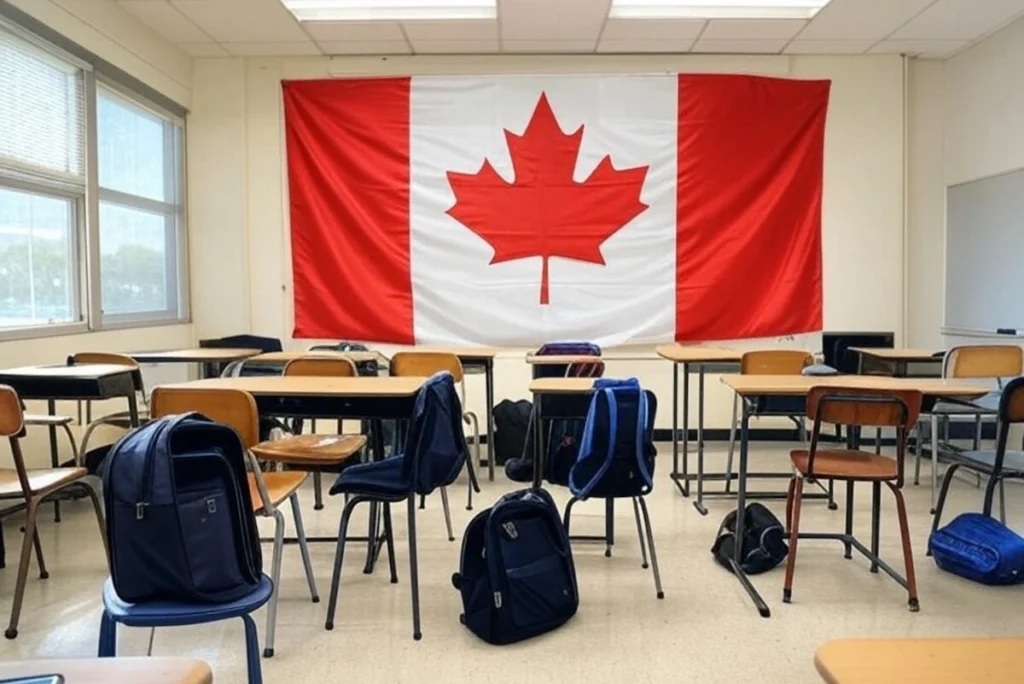In a shocking revelation, close to 50,000 international students who were issued study permits to pursue higher education in Canada were reported as “no-shows” by the colleges and universities where they were supposed to be enrolled, according to government data from spring 2024.
This figure, representing 6.9% of all international students tracked by Immigration, Refugees, and Citizenship Canada (IRCC), highlights an alarming trend that has sparked nationwide discussions about the effectiveness of Canada’s international student compliance system.
The Scope of the Problem
In March and April 2024, Canadian universities and colleges submitted compliance reports to IRCC, revealing that tens of thousands of international students failed to adhere to the terms of their study permits.
Additionally, the status of 23,514 students—3.3% of the total—remains unreported, raising concerns about accountability within the system.
The International Student Compliance Regime, introduced in 2014, requires designated learning institutions to report twice a year on whether international students are actively enrolled and attending classes.
This system aims to identify non-compliant students and detect institutions with questionable practices.
Potential Reasons Behind Non-Compliance
Experts suggest a variety of reasons why thousands of international students fail to comply with their study permits:
- Illegal U.S. Border Crossings: Reports from Indian authorities allege that some students use Canadian study permits as a gateway to cross the border illegally into the United States.
- Work and Residency Aspirations: According to Henry Lotin, a former federal economist, many non-compliant students likely remain in Canada to work or seek permanent residency instead of attending their designated institutions.
- Exploitation by Fraudulent Agents: Winnipeg immigration lawyer David Matas believes the abuse of study permits is often orchestrated by unregulated foreign agents or consultants.
Government’s Response to the Crisis
To curb the misuse of study permits, Immigration Minister Marc Miller introduced stricter rules in November 2023.
These include the possibility of suspending colleges and universities that fail to report on student compliance for up to a year.
IRCC has also enhanced monitoring measures to identify non-compliant students and ensure institutions adhere to the reporting requirements.
Renée LeBlanc Proctor, a spokesperson for Minister Miller, stated:
The Call for Better Oversight
Experts argue that the current system needs significant improvements, including:
- Mandatory Upfront Fee Payment: Lotin suggests requiring international students to pay tuition fees in advance as a way to deter misuse.
- Exclusive Use of Canadian Consultants: Matas advocates limiting the involvement of foreign agents and requiring students to work with Canadian-regulated lawyers or consultants.
Additionally, discrepancies in student population data between Statistics Canada and IRCC highlight the need for more accurate tracking methods.
Statistics Canada estimates over one million valid study permit holders in Canada, a figure much higher than the 644,349 overall compliant students reported by IRCC.
What’s Next for International Education in Canada?
Canada continues to grapple with balancing its reputation as a global education hub with ensuring the integrity of its immigration system.
Policymakers, educational institutions, and regulatory bodies should collaborate to create a more transparent and accountable system in response to the 50,000 international students reported as no-shows.
With international students contributing billions to Canada’s economy, addressing noncompliance issues is critical to maintaining the country’s global appeal.
Stricter policies, better oversight, and collaboration between government agencies and educational institutions will be essential in tackling this growing problem.


